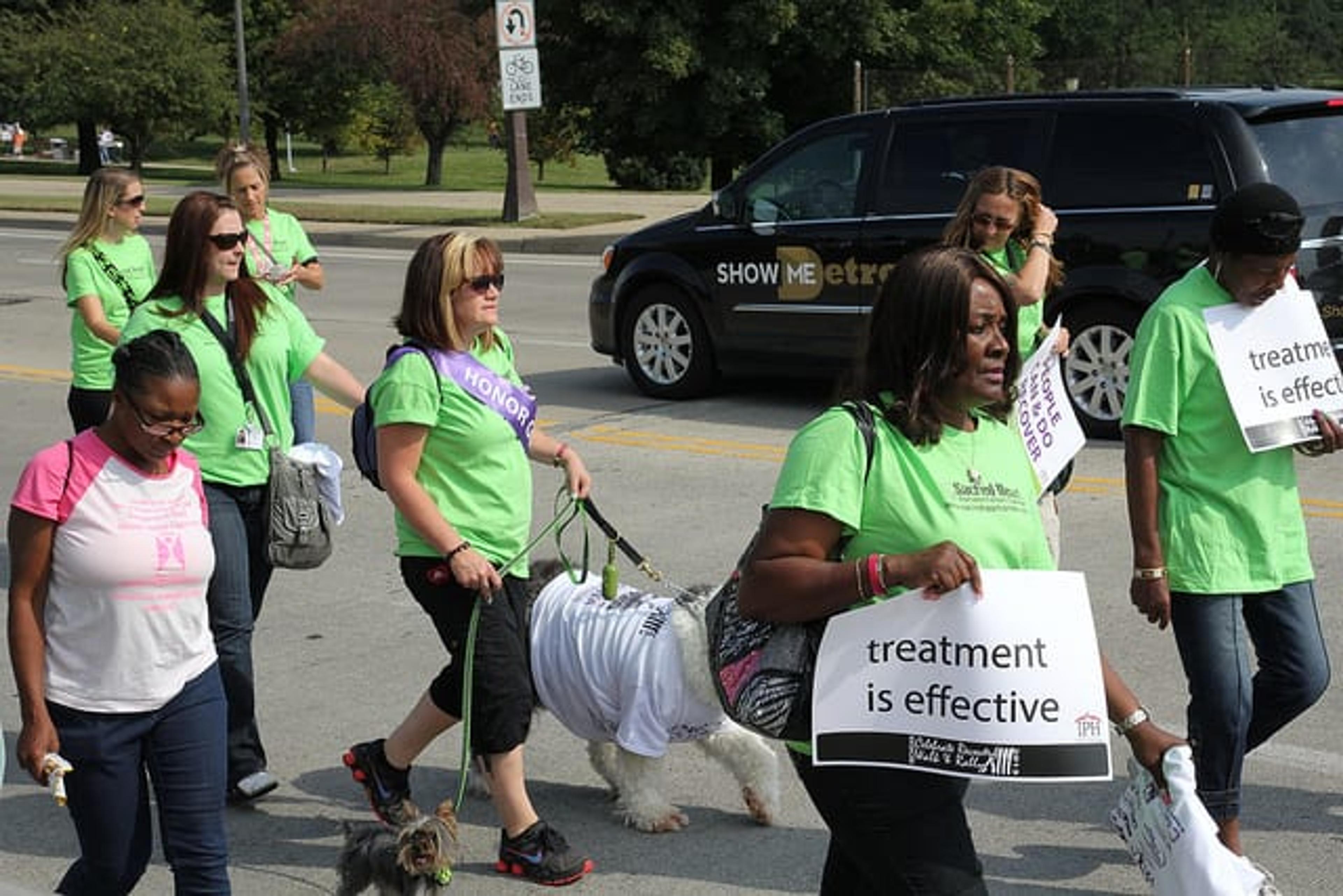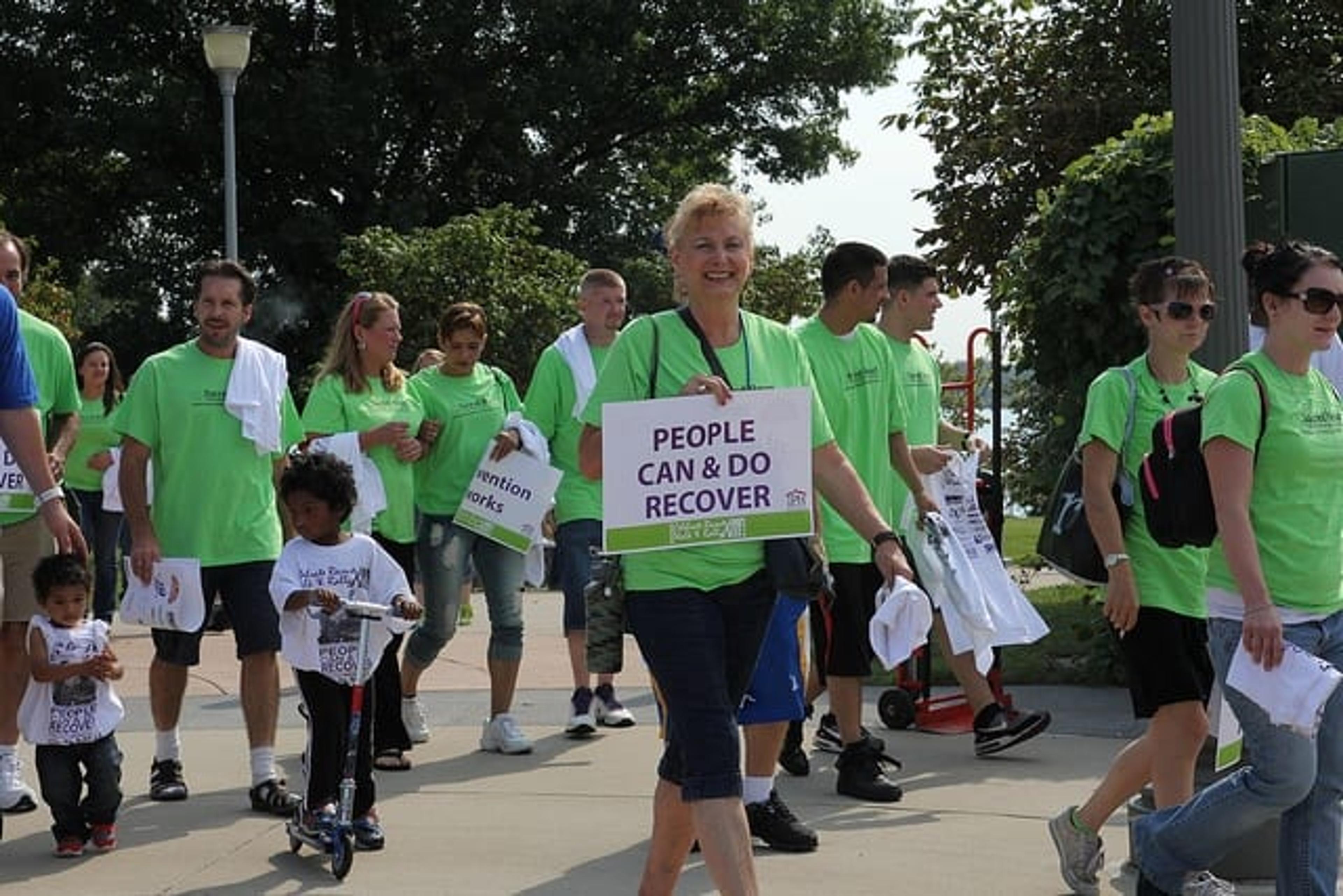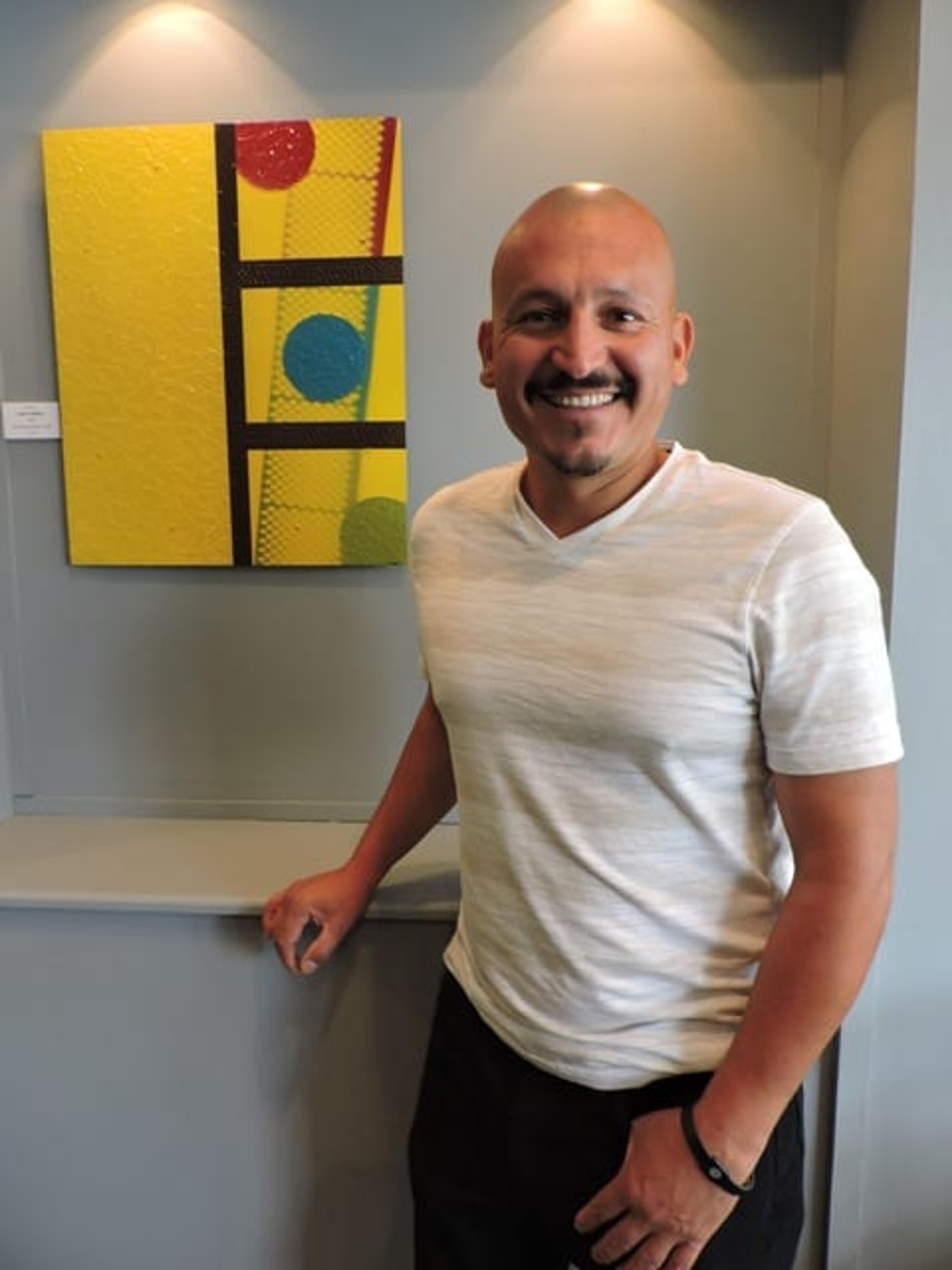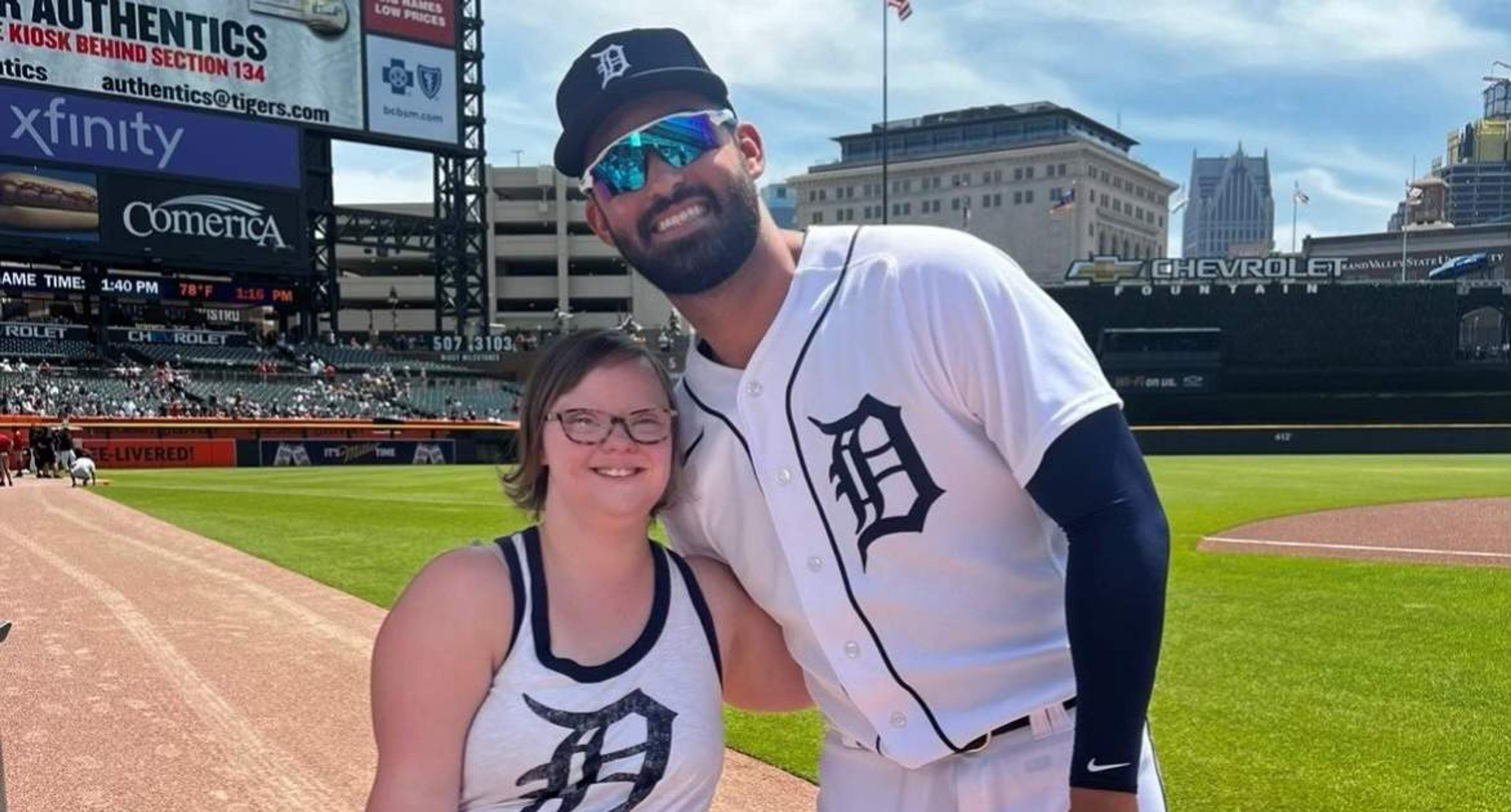Statewide Recovery Walk and Rally Takes Place in GR this Saturday

Julie Bitely
| 5 min read

Jose Salinas has a message for drug addicts, alcoholics, and those in treatment or recovery for substance abuse.
“We shouldn’t be ashamed. I shouldn’t be ashamed of who I am,” Salinas said. “I’m happy today and that’s all that matters.”
He’s taking part in this Saturday’s statewide Celebrate Recovery Walk and Rally, in collaboration with Recovery Palooza, based in Grand Rapids. The walk begins at 11:30 a.m. at Ah-Nab-Awen Park in Grand Rapids, with a program and open house following. September is National Alcohol and Drug Addiction Recovery Month.
Leonard Bade, founder of Integrate Recovery Solutions, will accept a posthumous recognition award on behalf of Betty Ford. Bade was one of the Betty Ford Center’s earliest patients and he has achieved over 30 years of recovery. Dr. Billie Taylor, Jr., former U of M football star and president of Get Back Up, Inc. will deliver a keynote address to those gathered.

A scene from last year’s walk.
The event is an opportunity for individuals in recovery, and those who support them to celebrate their successes and to challenge the stigma of the disease. It also serves to inspire hope for those in early recovery and those suffering from untreated addictions. After the walk and speakers, people are invited to enjoy activities for the whole family, including a giant slide, art, and carnival games for the kids.
For Salinas, volunteering at the event is his way of giving hope and giving back.
“I think a big part of my recovery is to be involved in volunteering for others,” he said. “I got tired of being a taker and just wanted to give.”
His story is remarkable. Born in Mexico, his father left his mother and three siblings when Salinas was just two. Having no money, job or education, his mom turned to the drug trade as a way to support her family.
“My mom was left in a very poor situation,” Salinas said.
The family moved to Texas when he was 10 or 11. His father was a U.S. citizen, so Salinas had legal status. Most of his extended family in Texas was involved in drugs – using, selling, or both.
A downward spiral began for Salinas at 12. He started smoking pot, moved on to cocaine at 13, and was fully immersed in the lifestyle by 16. It felt normal to him.
“It was part of how we make money and how we made a living was by selling drugs,” Salinas said.

Jose Salinas at a local coffee shop. He’s been sober for two years and is confident he can maintain his recovery.
For years, he was in and out of jail and prison. He was involved in shootings and almost overdosed multiple times. He said he didn’t survive because he was somehow smarter or stronger, it was simply by the grace of God that he’s still alive. His father eventually died of alcoholism and an older brother also passed away due to drugs.
Recovery started in 1997, ironically, due to an opportunity to be part of a big drug deal. Salinas’s drug suppliers wouldn’t let him in on the deal unless he sobered up to a functional level.
“I wasn’t useful to them because I was using so much,” he said.
To get clean for the drug deal, he went to a Christian rehab facility in Mexico. As part of a ceremony, he was called up to the church’s altar. He said he fell to his knees and asked for guidance from God. After crying for 20 minutes or more, he said he got up and “had no desire to get high.”
The big drug deal never came to fruition for Salinas. He had no interest when he got out of rehab after 90 days. He stayed clean, met his now ex-wife and started going to school to become a medical assistant. He moved to Grand Rapids in 2000 and went back to school for ministry. He accepted a pastoral appointment in the mid-2000s, but three months into the ministry, his wife left.
After nine years of sobriety, Salinas heard alcohol call his name. It started with just a couple of beers at home, but as Salinas points out, that was too much for someone with an addictive personality.
“A couple of them can lead to many, many more,” he said.
From there he was back to cocaine, heroin, and more stints in jail and rehab. At some point, he realized he was always chasing an emotion or a feeling through drugs, religion, and other obsessive actions. He again turned to his faith and asked for help in learning to accept himself as he was. He’s been clean and sober for two years now and feels confident his belief in God and continual recovery therapy and work will make it stick.
“I know that the right thing for me to do is to stay clean and sober,” he said.
The picture Salinas paints of the deepest depths of addiction is haunting.
“When you’re there, even though you’re around people or people are around you, you can be at the loneliest place you’ve ever imagined,” he said. “You feel all alone. You feel like an outcast.”
Kevin McLaughlin is the Executive Director of Recovery Allies of Michigan. He’s in long-term recovery for alcohol addiction. McLaughlin said misconceptions abound about addiction and recovery.
“The biggest one is that we call it a disease, but we don’t treat it like one,” he said.
Addicts are often blamed and labeled a failure when they’re unable to get clean on a first attempt, when McLaughlin said it just doesn’t always work that way. He said one-size-fits-all treatment doesn’t address the complexities of addiction.
There’s also a lot of shame and stigma, which is one factor the walk, rally, and open house aim to address. When someone survives cancer, we celebrate them. When someone survives addiction, McLaughlin said shame and stigma keep them quiet.
“By our silence, we allow others to define us,” he said.
McLaughlin compares that silence to the stigma that once surrounded the AIDS epidemic. Staying silent was literally killing people, he said. By being vocal that recovery from addiction is possible, McLaughlin hopes more avenues open up for those struggling.
Check out this video of last year’s Recovery Palooza event. Salinas has a cameo appearance at the 2:54 mark.
Photo credit: E Weber





